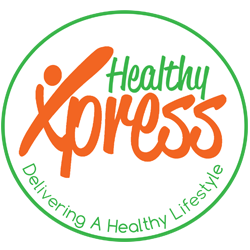The world dietary supplements market will hit 278.02 billion US dollars by 2024, as mentioned in a report by Grand View Research, Inc. With the rise of health problems such as obesity, diabetes and cardiovascular disorders in developed countries, more health-conscious individuals are switching to nutritional supplements like vitamins. Several health companies have come up with specific dietary options aimed at improving eating habits and overall health. While most of these supplements are safe and can offer actual health benefits, there can be some potential risks in their use.
Below are some tips that can help you be a better vitamin-taker:
Do You Need It?
Vitamin supplements are easy to acquire, and they do not require a medical prescription like other medicinal drugs. They are aimed to improve the vitamin levels in your body. While you may need to take some, they should not replace the balance of the variety of foods in your healthy diet. In addition to that, you must be careful about the quality standards in vitamin supplements so that you don’t consume supplements that contain harmful chemicals or toxins. Also, too much of some minerals can cause health problems. Perhaps before taking one, do more research on the potential benefits of vitamins and minerals, as well as the safe dosage limits of the nutrients.
Seek Your Doctor’s Advice
Seeking professional medical advice is a brilliant idea, especially for a particular group of people. Most vitamin supplements are risk-free, but when dealing with circumstances such as pregnancy, lactating mums, hypertension, diabetes or heart disease, they can cause some harm. Some supplements may contain active ingredients that can cause biological side effects to an unborn child since their safety is not guaranteed for all users. Always consult your doctor before you purchase or start taking any supplement. You may also wish to check with your family doctor before giving vitamins and mineral supplements to your child.
Do Research On the Quality of the Product
The production of dietary supplements involves complex manufacturing processes. Regulatory agencies such as the FDA have established good manufacturing processes (GMPs) for the supplements to ensure identity, strength, purity, and composition remain within health standards. These GMPs are set to prevent possible inclusion of wrong ingredients, contaminations, improper packaging of a product among others. Once the products meet the standards set, a seal of approval is placed on the product package. These seals of approval guarantee that the product was properly manufactured, contains a list of genuine ingredients and has no harmful levels of contaminants. Be sure to look for these seals of approval when purchasing vitamin supplements.
Some Supplements May Interact With Other Drugs
Taking several vitamin supplements with other medications (whether over the counter or prescription drugs) could bring about adverse effects, in some cases even fatal. Always be informed about these products, whether to be taken alone or in combination. A good example is the vitamin E supplement. Taking it with aspirin alongside Coumadin (a drug used to treat blood clots in veins) can increase the chances of suffering internal bleeding.
Like most people, you may take dietary supplements to boost your health. With so many vitamins and mineral supplements available, deciding whether they are safe or useful to you can be a daunting task. Follow the tips mentioned above to help you ensure safety when taking dietary supplements.
By: Jane Sandwood

